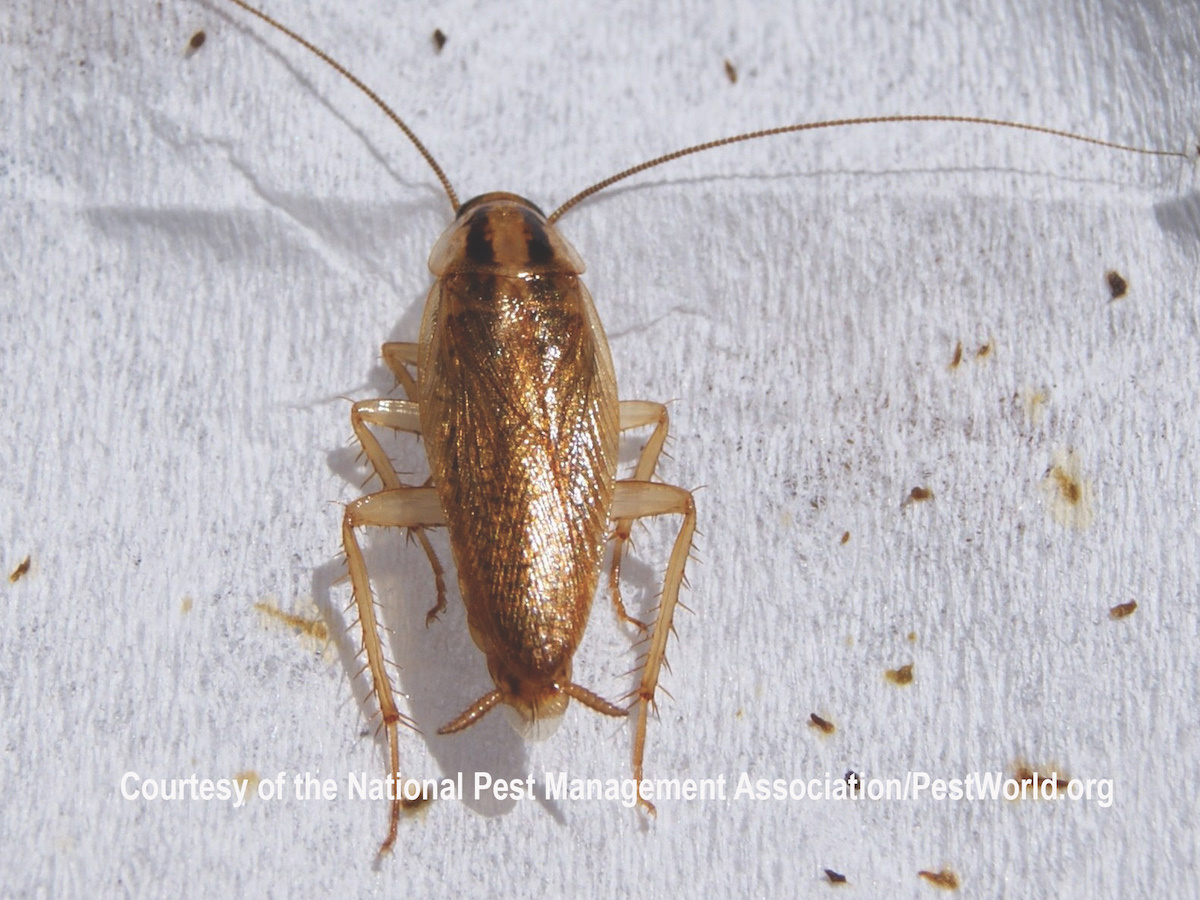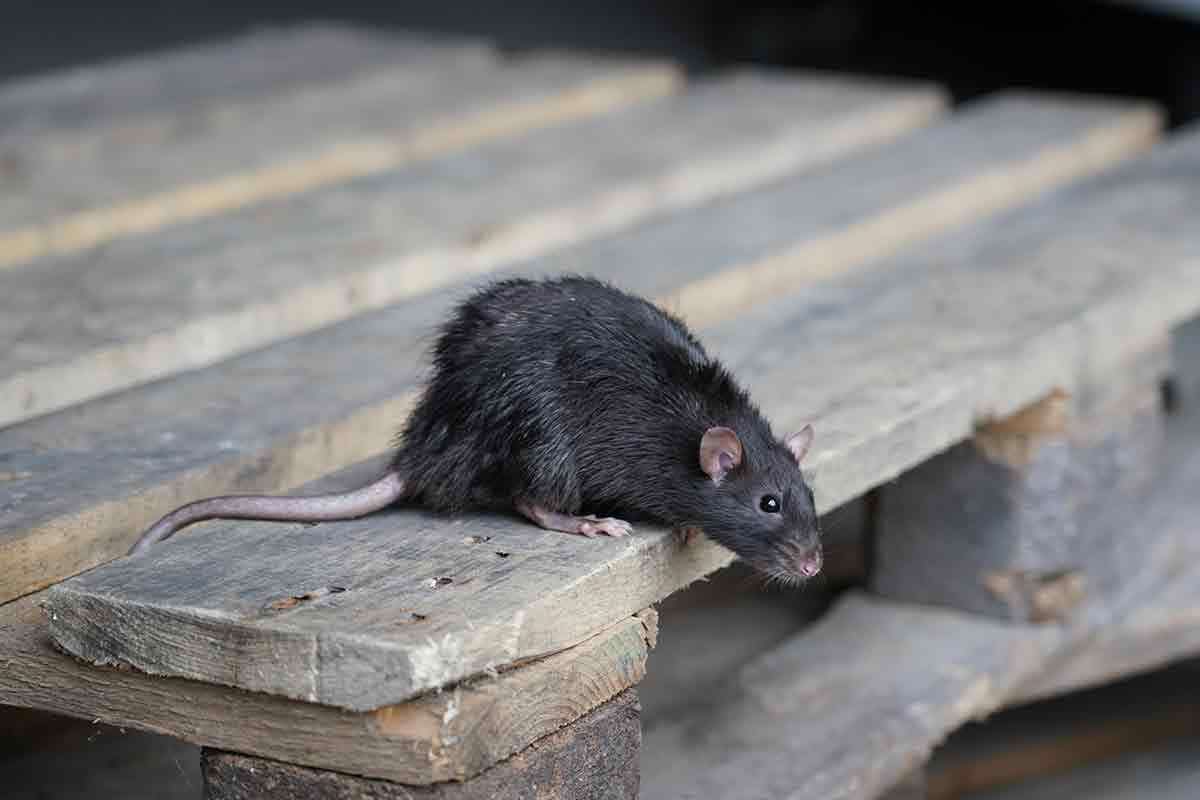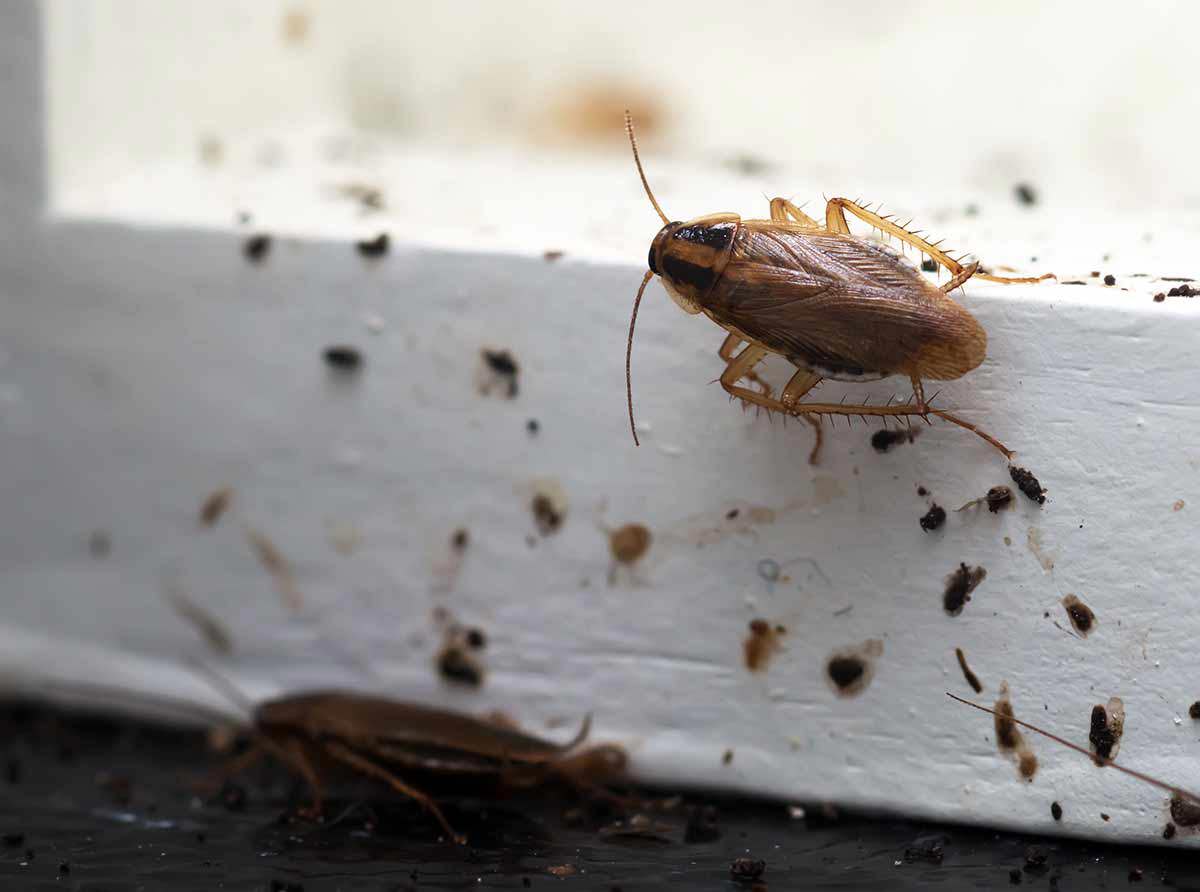German Cockroaches Blattella germanica (Linnaeus)

German Cockroach Identification
Color: Light brown to tan, with two dark, almost parallel stripes located on their backs, just behind their heads
Size: ½”-5/8” long
Legs: 6
Antennae: Yes
Shape: Oval
Region: Found throughout the United States
What is a German Cockroach?
The German cockroach is the most common cockroach species found worldwide. While German cockroach infestations occur in a variety of human occupied spaces, they are most often associated with restaurants, food processing facilities, hotels, nursing homes and other institutional facilities. Keep reading to learn more facts and to get information on German cockroach control.
What Do German Cockroaches Look Like?
Adult German cockroaches are recognized by their light brown to tan coloring with two dark, almost parallel stripes, located on their backs. Female German cockroaches tend to be darker than males. German cockroach nymphs are dark brown to black in color with the same dark stripes located on their backs. While German cockroaches have wings, they rarely fly. Instead, they prefer to run.
German cockroaches show a preference for warm (70°F/21°C) and humid places. They are usually found in residential and commercial kitchens and secondarily in bathrooms. However, a German cockroach infestation can occur in any area where people eat and drink. In homes, this includes dining rooms, living rooms, dens and bedrooms. Any crack of crevice located near a source of food and/or water can harbor cockroaches. German cockroaches can fit through an opening as small as 3/8 inch in width.
German cockroaches are good hitchhikers and often find their way into new structures by hitching a ride in grocery bags, cardboard boxes, drink cartons and secondhand appliances such as refrigerators, televisions, microwaves, etc. They have been observed to migrate from building to building on warm evenings. Although uncommon, they can survive outdoors during the warm months.
German cockroaches have a wide palate. They will feed on almost anything with nutritional value including all kinds of food, as well as soap, glue and toothpaste.
Activity periods for German cockroaches vary greatly with life state, age and physiological state. For example, reproducing females are quite active, whereas males spend the majority of their time in harborage even at night.
German cockroaches are not known to bite humans. Instead, they primarily threaten human health with their ability to spread bacteria and human pathogens.
More than just a nuisance, German cockroaches have been implicated in outbreaks of illness and allergic reactions in many people. Cockroaches have been reported to spread at least 33 kinds of bacteria, six kinds of parasitic worms and at least seven other kinds of human pathogens. They can pick up germs on the spines of their legs and bodies as they crawl through decaying matter or sewage and then carry these into food or onto food surfaces. Read more: The Truth About Cockroaches and Health.
Medical studies have shown that German cockroach allergens cause allergic reactions and can exacerbate asthma attacks, especially in children. This makes German cockroach control incredibly vital.
German cockroaches prefer to live in warm, humid places close to food and moisture sources. They are frequently found in residential and commercial kitchen environments, and bathrooms, so these are the two most likely places for an infestation to occur. It is also likely to find German cockroach dropping in areas they frequent. Droppings may appear as small, dark, “pepper-like” material left on countertops or in drawers. There may also be fecal staining, which appears as dark spots or smears in the corners of rooms, along the tops of doors or around small cracks and openings into walls.
When German cockroach populations are present in large numbers, it may be possible to detect a mild, somewhat “musty” odor.
Wondering how to get rid of German cockroaches? The best advice for German cockroach control is to practice good sanitation. To prevent German cockroaches from infesting a home or business, people should maintain a clean kitchen by cleaning up crumbs, wiping spills and vacuuming often. Avoid leaving dishes pile up in the sink. It is also important to seal all entrances to the structure, especially around utility pipes, and ventilate crawl spaces to prevent moisture buildup. If there is evidence of a German cockroach infestation, contact a licensed pest professional to inspect and treat the German cockroach problem.
German cockroaches can breed at a rate of up to six generations per year, so a pest control company may recommend a reoccurring service to address this rapid reproductive rate.
You can find a certified pest professional near you with the helpful zip code search below.







